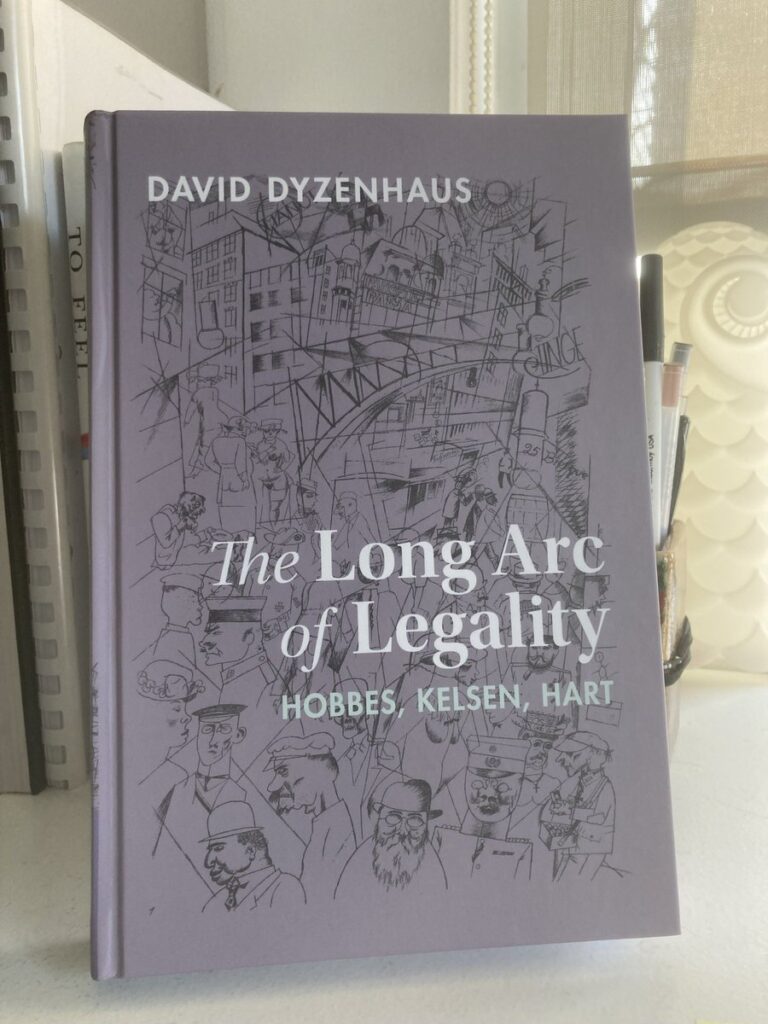During the 2022 Spring Semester, a group of students and faculty of NYU School of Law met regularly to read and discuss Professor David Dyzenhaus’ The Long Arc of Legality: Hobbes, Kelsen, Hart (Cambridge University Press, 2022). To conclude our discussion and to celebrate the book we invite Professor Dyzenhaus to join us for a public conversation.

Date: Friday, November 4th 11:00am to 1:00pm
Location: The Guarini Institute for Global Legal Studies, 22 Washington Square North (first floor lounge)
Moderated by: Professor Lewis Kornhauser
Greetings by: Professor Liam Murphy
Comments by NYU Law students and alumni:
Alma Diamond, James Wilson, Meir Yarom, Tomer Kenneth, Xi Zhang, Teng Li, Hugo Lafrenière, Haley Anderson
Responses by Professor David Dyzenhaus
About the book:
The Long Arc of Legality breaks the current deadlock in philosophy of law between legal positivism and natural law by showing that any understanding of law as a matter of authority must account for the interaction of enacted law with fundamental principles of legality. This interaction conditions law’s content so that officials have the moral resources to answer the legal subject’s question, ‘But, how can that be law for me?’ David Dyzenhaus brings Thomas Hobbes and Hans Kelsen into a dialogue with H. L. A. Hart, showing that philosophy of law must work with the idea of legitimate authority and its basis in the social contract. He argues that the legality of international law and constitutional law are integral to the main tasks of philosophy of law, and that legal theory must attend both to the politics of legal space and to the way in which law provides us with a ‘public conscience’
Please register in advance. Kindly note that you must adhere to NYU safety protocols and NYU’s COVID-19 vaccination requirements to attend in person. If you have any questions, please contact Karin Loevy at jsdcoordinator@nyu.edu.
This event is co-sponsored by NYU School of Law’s JSD Program, the Institute for International Law and Justice, and the Center for Law and Philosophy.

